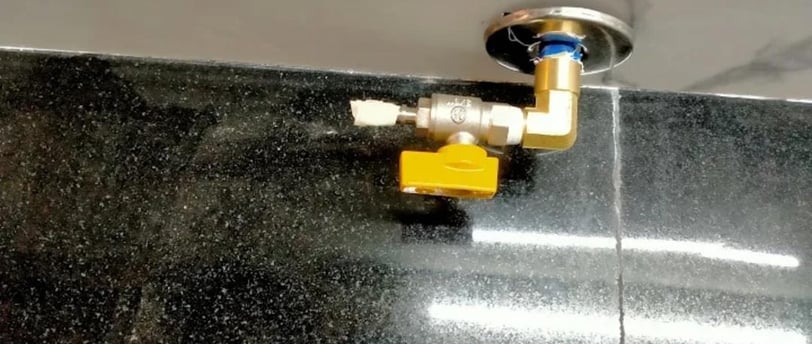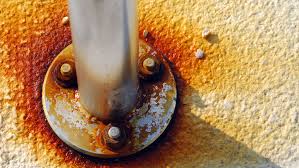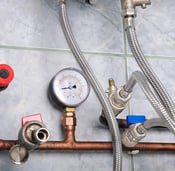What Are the Best Practices for Gas Pipeline Maintenance?
Regular and proactive maintenance helps to prevent leaks, corrosion, and other issues that could lead to hazardous situations or costly repairs.
11/7/20244 min read


Gas pipeline systems play a vital role in transporting natural gas to homes, businesses, and industries. Regular maintenance of these pipelines is crucial to ensure the smooth, safe, and reliable delivery of gas. Whether you are involved in gas pipeline installation in Hyderabad or managing an existing pipeline system, understanding the best practices for gas pipeline maintenance is essential for preventing costly repairs, ensuring safety, and enhancing the longevity of your infrastructure.
Here are the best practices for gas pipeline maintenance:
1. Routine Inspections and Monitoring
One of the key components of pipeline maintenance is regular inspection. This can include visual checks for damage, corrosion, and leaks, as well as more advanced monitoring using technologies such as smart pigs. These specialized tools travel through pipelines to assess their internal condition. Routine inspections should be a part of the regular maintenance schedule to catch issues before they turn into serious problems.
In cities like Hyderabad, where gas pipeline installation is becoming increasingly common, it's essential to have automated monitoring systems to track real-time pressure and flow data. Remote monitoring systems can also be connected to SCADA (Supervisory Control and Data Acquisition) systems for comprehensive, continuous monitoring.
2. Corrosion Prevention and Control
Corrosion is one of the most common causes of gas pipeline failure. To mitigate this, pipelines should be equipped with cathodic protection systems that prevent the metal surfaces from corroding. These systems help maintain pipeline integrity and reduce maintenance costs over the long term.
Additionally, proper external coatings should be applied during the gas pipeline installation in Hyderabad, especially for underground or subsea pipelines, to protect them from environmental factors. Regular inspections of the coating’s integrity are necessary to prevent exposure to corrosion-causing elements.
3. Leak Detection and Response
Gas leaks are hazardous and can lead to dangerous accidents if not detected promptly. It is critical to incorporate advanced leak detection technologies into the pipeline system. Techniques such as acoustic sensors, infrared cameras, and gas sniffers can detect small leaks before they escalate.
For instance, pressure monitoring systems can be used to identify pressure drops or abnormalities, which could indicate a potential leak. Operators should also have an emergency response plan in place to quickly address any leaks that may occur.
In a fast-growing city like Hyderabad, having an integrated leak detection and response system is especially important as urban infrastructure expands and more pipelines are laid down.
4. Pipeline Cleaning (Pigging)
Cleaning the pipeline is an essential maintenance activity to remove debris, scale, and other build-up that can affect the flow of gas and cause corrosion. This is typically done using pipeline pigs, which are devices inserted into the pipeline that travel through the system to scrape or push out impurities.
Regular pigging helps maintain the flow of gas, reduces the risk of internal corrosion, and ensures that the system is free from debris that could obstruct gas flow. For gas pipeline installation in Hyderabad, setting a pigging schedule for newly laid pipes is essential to ensure optimal operational conditions from the start.
5. Pressure and Safety Relief Systems
To prevent the buildup of excessive pressure, it’s important to install and maintain pressure relief valves and safety shut-off systems along the pipeline. These devices automatically reduce pressure when it exceeds a certain threshold, preventing ruptures or leaks.
Surge protection is also essential in cases where sudden changes in gas flow could cause pressure spikes. Installing these safety mechanisms during installation and maintaining them regularly will help avoid catastrophic failures.
6. Adherence to Regulatory Compliance
Maintaining gas pipelines is not just about technical expertise but also about adhering to local and national regulations. In Hyderabad, and across India, gas pipeline operators must comply with safety standards and environmental regulations set by government bodies like the Petroleum and Natural Gas Regulatory Board (PNGRB).
Proper documentation of inspections, maintenance activities, and repairs is crucial for compliance. Gas pipeline operators must stay updated on regulations and ensure that all activities are in line with legal and environmental requirements.
7. Predictive Maintenance Through Technology
Predictive maintenance uses advanced data analytics and machine learning to predict when a pipeline will require repairs or replacement. By analyzing sensor data and historical performance, predictive models can determine which parts of the pipeline are at risk of failure. This proactive approach helps avoid unexpected downtimes and costly emergency repairs.
For gas pipeline operators in Hyderabad, integrating predictive maintenance tools into the pipeline infrastructure can enhance operational efficiency, reduce costs, and ensure a longer lifespan for the system.
8. Emergency Preparedness
Even with the best maintenance practices, emergencies can still happen. Gas leaks, pipeline bursts, or external damage can cause significant hazards. It's crucial to have an emergency response plan in place. This includes quick response teams, access to repair kits, and strategies for containing and mitigating the damage caused by leaks or ruptures.
Regular emergency drills should be conducted to ensure that workers and response teams are well-prepared for any eventuality. An emergency response plan tailored to the specific needs of Hyderabad's urban environment, where pipelines are often laid under densely populated areas, is essential for safety.
9. Environmental Considerations
Pipeline maintenance should prioritize environmental safety. Regularly monitor for leaks or spills that could affect soil and water quality. In urban settings like Hyderabad, where pipelines often cross sensitive ecological zones, it’s vital to ensure that all maintenance activities are environmentally responsible.
Additionally, all hazardous materials used in pipeline repair and maintenance should be disposed of in accordance with environmental standards to avoid contamination of the surrounding area.
Conclusion
Effective gas pipeline maintenance ensures the safety, reliability, and longevity of pipeline systems, making it an essential part of energy infrastructure. For those involved in gas pipeline installation in Hyderabad, incorporating these best practices will help mitigate risks, reduce downtime, and improve operational efficiency. By investing in routine inspections, corrosion control, leak detection, and advanced maintenance technologies, pipeline operators can maintain safe, efficient gas transportation systems that benefit both the economy and the public.
By following these best practices, Hyderabad can ensure that its growing demand for natural gas is met without compromising safety or environmental standards. Whether you're involved in installing new pipelines or managing existing infrastructure, these maintenance strategies are essential for building a safe and sustainable gas delivery network
for more information call us 8522092525




Contact US Today:
Email: info@vaultgaspipeline.site
Phone:
+91 8522 09 2525
+91 95155 92020


Quick Links:
Services
Our Process
Why Choose us
Contact us
Our Services:
Gas Pipeline Installation
Gas Pipeline Maintenance
